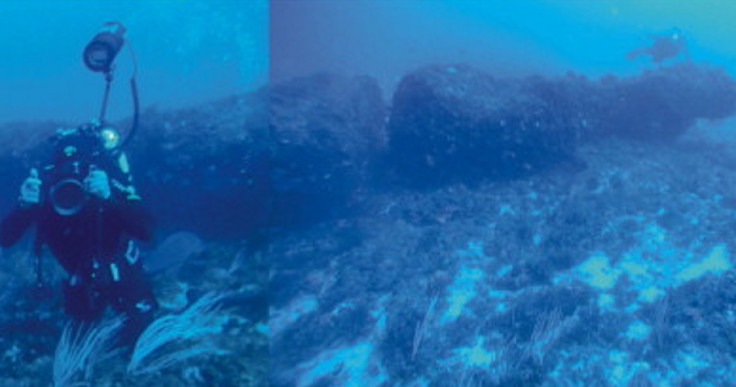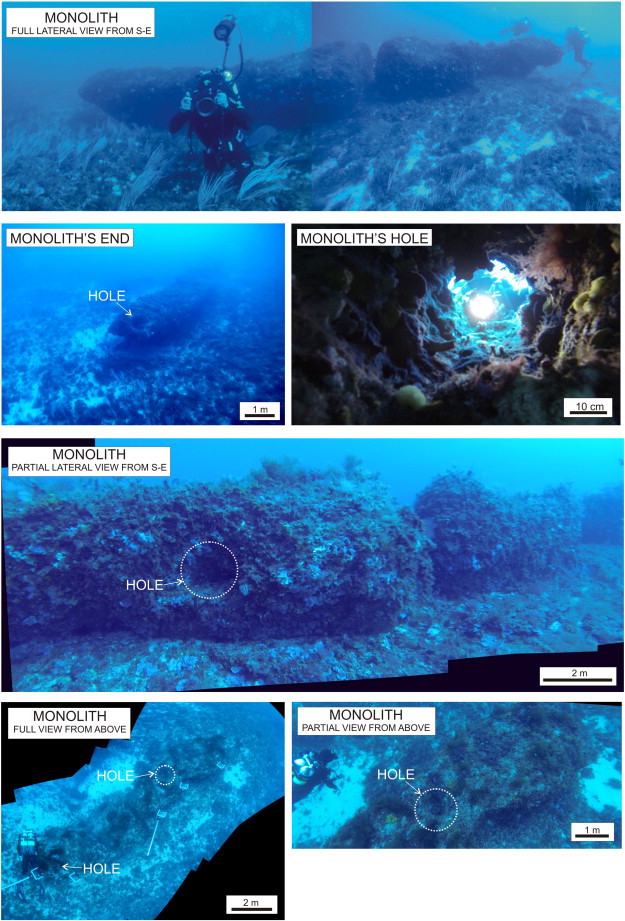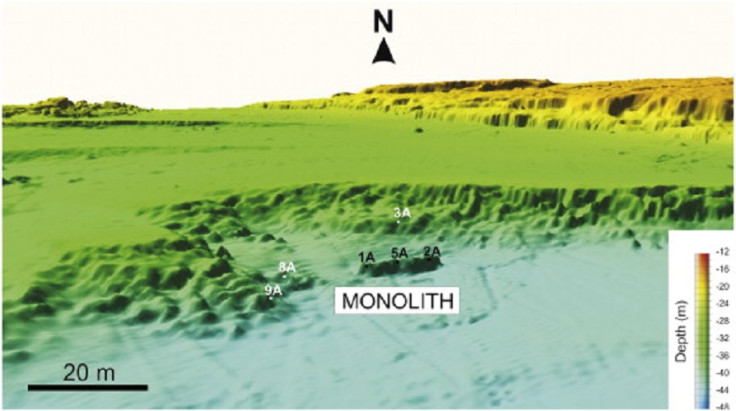Underwater Stonehenge: Huge monument made by ancient civilisation discovered off coast of Sicily

Archaeologists have discovered what they believe is the remains of a massive man-made monument built by an ancient civilisation that serves a similar, mysterious, purpose to Stonehenge.
A report published in Science Direct details how a 12-metre-long man-made monolith was discovered in the deep sea off the coast of Sicily in what was once an island called the Pantelleria Vecchia Bank.

They believe that the monument, which was split in half, came from an ancient civilisation from more than 10,000 years ago, but was eventually submerged during a massive flood.
The statue has three holes in it with one going right through the middle in what is described as a "unique and significant structure", say authors Zvi Ben-Avraham from the Department of Earth Sciences at Tel Aviv University, and Emanuele Lodolo, from the Istituto Nazionale di Oceanografia e di Geofisica Sperimentale (OGS) in Trieste, Italy.
They write: "The discovery of the submerged site in the Sicilian Channel may significantly expand our knowledge of the earliest civilisations in the Mediterranean basin and our views on technological innovation and development achieved by the Mesolithic inhabitants.

"The monolith found, made of a single, large block, required a cutting, extraction, transportation and installation, which undoubtedly reveals important technical skills and great engineering. The belief that our ancestors lacked the knowledge, skill and technology to exploit marine resources or make sea crossings, must be progressively abandoned.
"The recent findings of submerged archaeology have definitively removed the idea of 'technological primitivism' often attributed to hunter-gatherers coastal settlers."
They added the find shows how little we still know of early civilisations: "The idea that early human ancestors once lived at the sea-floor of modern seas easily fascinates and attracts our imagination.
"What is more surprising, and until recently poorly recognised, is that an extensive archaeological record of early settlements still remains on the sea-floor of our continental shelves ... The vast majority of marine geophysicist and archaeologists have now realised that to trace the origins of civilisation in the Mediterranean region, it is necessary to focus research in the now submerged shelf areas."
© Copyright IBTimes 2025. All rights reserved.






















